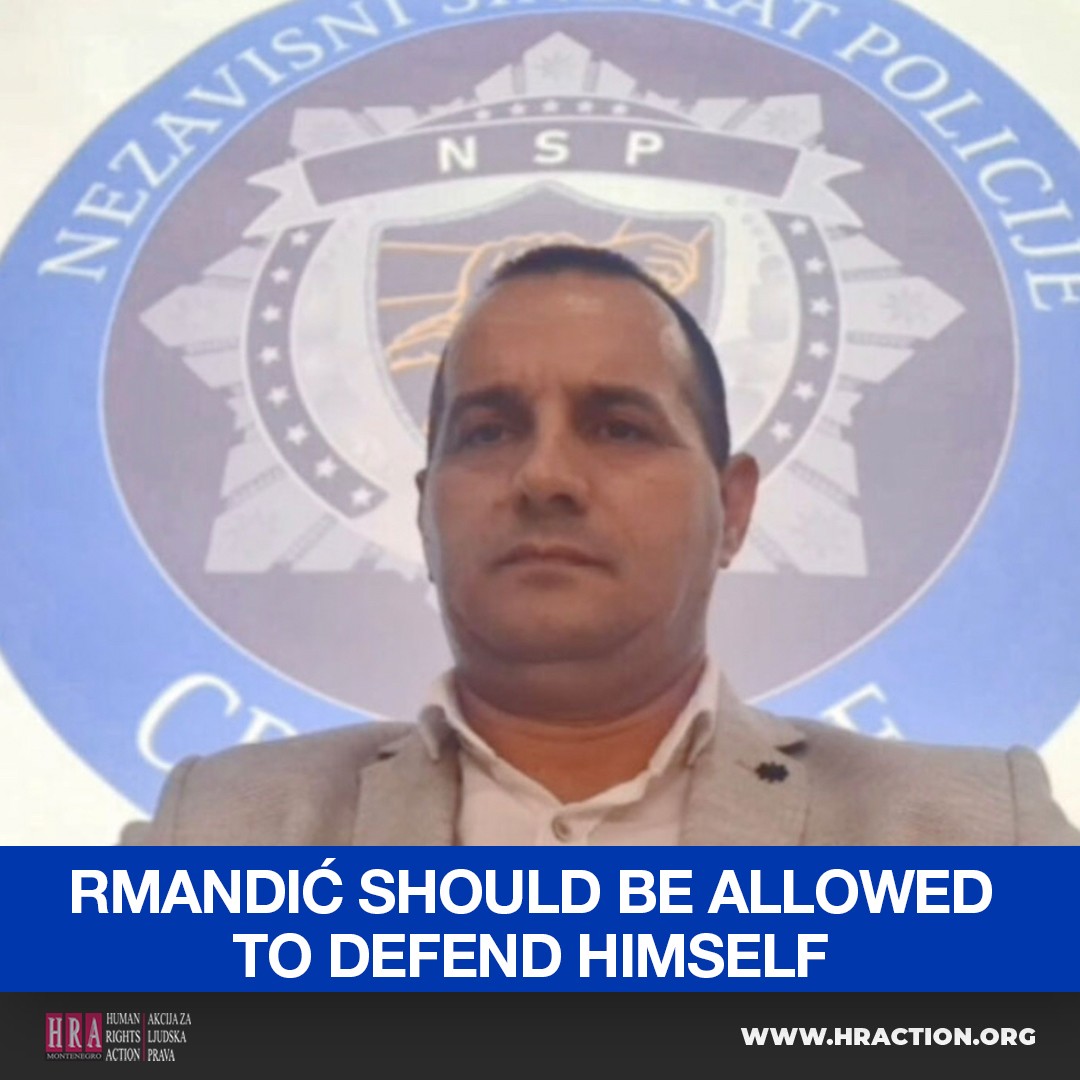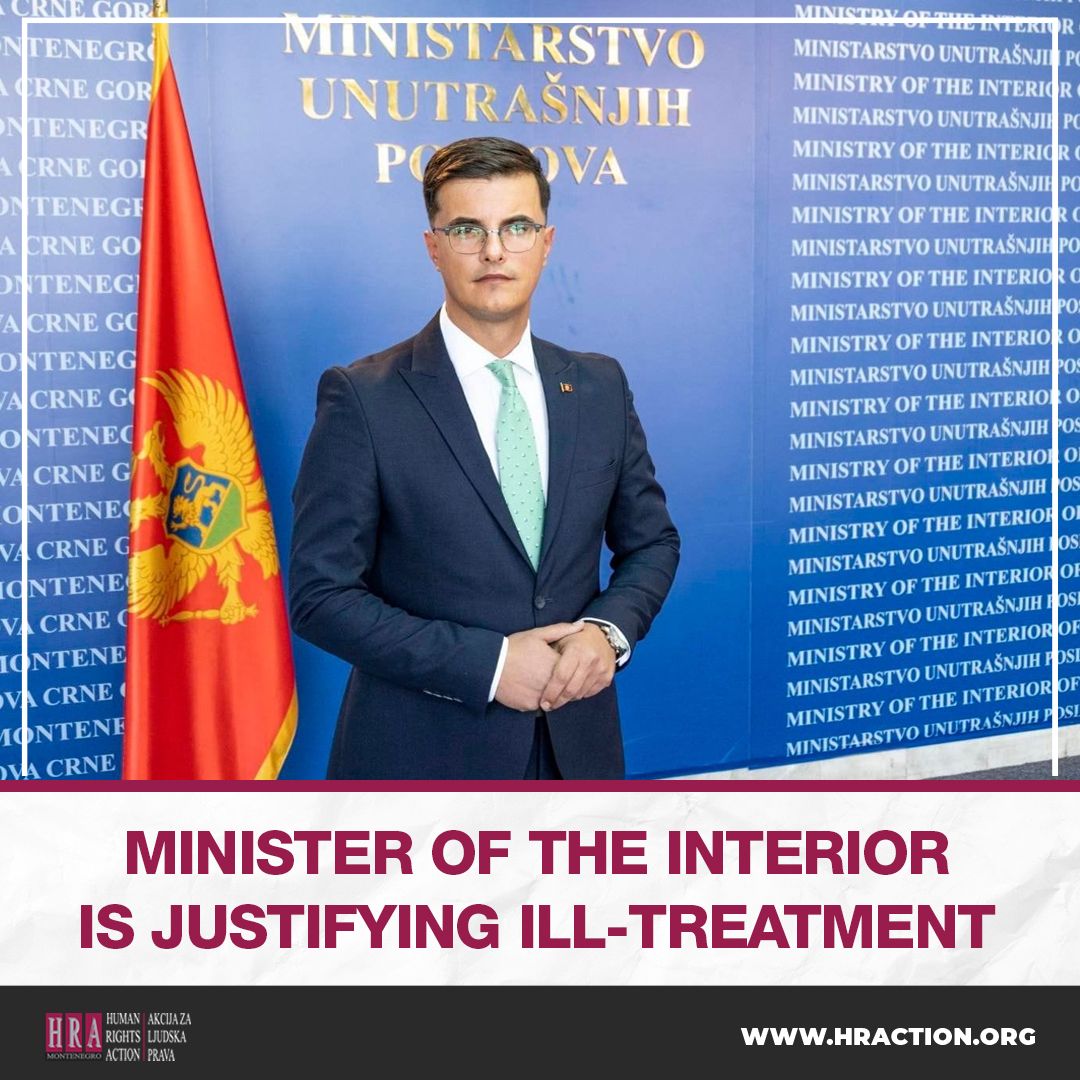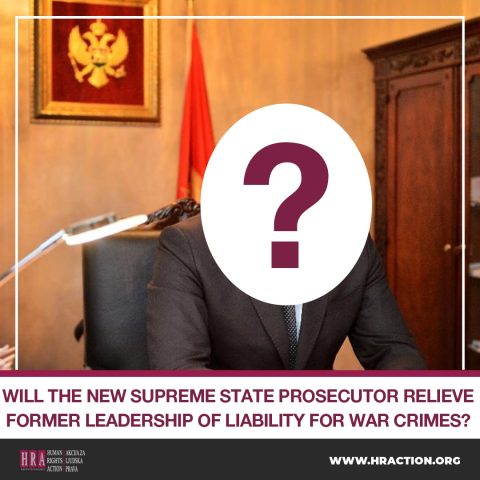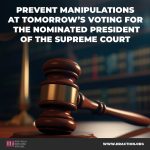
RMANDIĆ SHOULD BE ALLOWED TO DEFEND HIMSELF
24/01/2024
MINISTER OF THE INTERIOR IS JUSTIFYING ILL-TREATMENT
25/01/2024WILL THE NEW SUPREME STATE PROSECUTOR RELIEVE FORMER LEADERSHIP OF LIABILITY FOR WAR CRIMES?

On Saturday, 27 January, the Parliament of Montenegro will be deciding on the election of the Supreme State Prosecutor (SSP), choosing among three candidates: Maja Jovanović, Suzana Mugoša and Milorad Marković.
It will depend on the person who will be elected the new SSP whether in the next five years Montenegro will take the strategic step towards rule of law and convince the European Union that it deserves to become its member.
Considering the importance of the election of the SSP for the future of the country, MPs should pay special attention to the candidates’ opinions on the prosecution of war crimes, viewing it as a test of their readiness to also prosecute people at the top of the former government.
The willingness to review old war crimes cases such as Bukovica, Deportation, Kaludjerski Laz and Morinje implies examination of command responsibility as well, which the prosecution has not dealt with to date due to lack of political will.
The benchmarks for Chapter 23 – Judiciary and Fundamental Rights required that the state prosecution and courts of Montenegro show the capacity – which they have not shown so far – to independently prosecute war crimes in accordance with international humanitarian law and the practice of the Hague Tribunal, and to take effective measures to eliminate impunity. This is necessary if the country is to receive the final benchmark approval required for closing this Chapter.
The above also requires dealing with the old, unsuccessfully prosecuted war crimes cases known as Deportation, Bukovica and Kaludjerski Laz. As the European Commission repeated in several of its reports, the judgments in these cases were contrary to international humanitarian law and contained legal errors.
Maurizio Salustro, state prosecutor and international judge who was engaged by the European Commission in 2014 to analyse the work of the state prosecution and the courts of Montenegro, had criticised the legal qualifications of the state prosecution and its approach to criminal prosecution in those cases, finding the views of the court to be “obviously incorrect” and “unprecedented”.
That is why the review of old cases became a strategic issue as early as in 2015, when the War Crimes Investigation Strategy stipulated that the Special State Prosecutor’s Office should seriously devote itself to “reviewing old cases with the aim of identifying more suspects, taking into account all models of criminal responsibility and criminal acts”.
The candidates for the office of SSP spoke about the prosecution of war crimes only before the parliamentary committee, and only in response to MPs’ questions.
No one gave adequate assurances that s/he will in fact review the old cases, although there are serious suspicions that there was deliberate misqualification, i.e. incorrect application of the law, especially in the Bukovica and Deportation cases, that the lack of political will had affected the prosecution of these war crimes, and that the judgments served primarily to protect the political elite and the narrative that Montenegro did not participate in the wars.
Maja Jovanović formally raised the issue of revising the War Crimes Investigation Strategy. However, in the year she spent discharging the office, she did not come up with an action plan that would seriously implement the existing Strategy, nor is it known whether or not she conducted an evaluation of what the Special State Prosecutor’s Office did regarding the prosecution of war crimes. Jovanović pointed out that the action plan would be an integral part of the new Strategy, and that she believes it necessary to have two prosecutors who will be dealing exclusively with war crimes cases. She did not mention old cases.
Milorad Marković, the candidate for SSP favoured by the parties of the new majority, said that he considers old war crimes cases completed, and that there will be room for reconsideration only if the Hague Tribunal – the Residual Mechanism submits new material. If not, he does not intend to review old cases. This position should be a particular cause for concern, and it should be examined whether Marković has a conflict of interest in this matter, as his late father had been accused of war crimes and acquitted precisely in one of these cases – Deportation of refugees. (His father was the assistant minister of the interior for public security at the time, and in that capacity also responsible for engagement of the police unit on the Dubrovnik battlefield.)
Suzana Mugoša, the candidate who has the least chance of being elected because she was not proposed by the Prosecutorial Council and the government representatives are not willing to support her, was the only one who made a positive statement: “If I am elected, you can be certain that I will deal with war crimes very seriously. I believe that there is room for this, to review old cases and open new ones. Because it seems to me that, when people are willing to work, evidence does tend to appear”.






 English
English